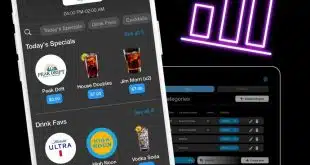E-commerce processor Adyen Inc. announced last month it is now offering payments capability for physical stores in the United States, a move that follows the company’s success in providing a payments gateway for a number of prominent digital clients, including Facebook, Uber, Airbnb, and Netflix.
Adyen, a Netherlands-based company with U.S. headquarters in San Francisco, entered the North American market early in 2010 and has steadily grown its base of U.S. e-commerce clients.
It has offered in-store payments processing in Europe for several years. Now it says it will handle payments at the point of sale in the U.S. on a wide range of card brands, including American Express, Discover, MasterCard, and Visa, as well as debit card brands such as Pulse and Star.
The company, which is aiming the new service at so-called omnichannel merchants that operate physical as well as online stores, will also manage functions such as letting in-store customers order out-of-stock merchandise online and online customers return items at the store. The latter move can help control fraud losses stemming from online customers who return merchandise at a physical outlet but don’t present the payment card they originally used, the company says.
A number of Adyen’s clients, including some apparel retailers as well as Mango, Crocs, and Domino’s Pizza, have already begun using the new service, which is EMV-compliant, in “multiple markets.” Worldwide, Adyen processes for 4,500 merchants. It handled $50 billion in volume last year.
With its introduction in the U.S. market, the in-store solution clears away years of accumulated technical obstacles that have hampered efforts to tie together payments and related data between e-commerce and in-store transactions, the company says.
“Everyone’s been talking about omnichannel for five-plus years now, but how do you enable it?” asks Kamran Zaki, president of Adyen North America. “It’s natural that retailers look to people like us who can enable it with one global platform.”
“I believe the U.S. market is waiting for a true omnichannel solution,” says Adil Moussa, principal at Omaha, Neb.-based payments consultancy AdilConsulting. “Solutions that lower friction between marketing, sales, and fulfillment help elate customers and that’s what merchants are looking for. Adyen is a welcome addition to the U.S. market.”
Adyen levies the same fee for POS transactions that it charges for e-commerce payments, 10 cents plus 0.6%, according to a spokesperson. As is usually the case in processing, larger volumes fetch somewhat lower pricing.
A Good Start for Klarna
Sweden’s online-payments firm Klarna started operations in the United States only five months ago, but already it is making itself felt in the highly competitive business of serving U.S. e-commerce merchants.
By early January, nearly 20 retailers had signed up for the company’s streamlined checkout service, including big sellers Overstock.com and Shoes.com. That’s shy of the 50 or so the company expected by year’s end, but not a bad start after a Sept. 1 launch. And close to 1 million consumers have used the service, ringing up sales at a current annual run rate of $1 billion.
Meanwhile, more payment options are on the way. “This year, you’ll see us scale aggressively in terms of the number of merchants and options for consumers,” says Brian Billingsley, chief executive of Columbus, Ohio-based Klarna North America.
Klarna counts on frictionless checkout to boost usage, especially on mobile sites, where abandonment rates soar when users must type out streams of information. To use the service, consumers enter an email address and a Zip Code for identification. That links them to a wallet that stores credit and debit card credentials, though Billingsley says bank-account transfers via the automated clearing house and proprietary credit cards are coming in the second quarter.
For each transaction, Klarna pays the merchant within a couple of days and then bills the consumer, who has fully 14 days to pay Klarna. That appeals to buyers who want to try out products before they pay for them, Billingsley says.
Merchants pay what amounts to a discount fee for each transaction. The current rack rate is 3.5% plus 30 cents, though bigger sellers pay less. In return, Klarna handles credit risk, fraud prevention, and chargebacks. Also, merchants should see lower abandonment rates, the company says.
Klarna is not alone in this business, but the U.S. market is wide. “There’s certainly a niche—maybe a pretty big niche—in e-commerce for low-friction payments and low-friction credit,” notes Eric Grover, principal at Intrepid Ventures, a Minden, Nev.-based consultancy that follows payments, in an email message.
The streamlined checkout is particularly important as e-commerce increasingly moves to mobile devices, though here Klarna is up against rivals that recognize the same thing. A number of gateways and processors have recently introduced fast-checkout routines to keep mobile users from walking away from transactions.
A prominent example is PayPal Holdings Inc.’s One Touch technology, which allows PayPal users to buy with a single click. As of October, 1 million merchants globally, and half of the Internet Retailer 500 merchants, were offering One Touch, and some 7 million consumers were using it.
Despite its fast start, “Klarna will find electronic payments in the U.S. in 2016 a tougher slog than Sweden a decade ago,” observes Grover. “Online and mobile-commerce payments friction is being reduced by a host of open, in-app, and closed digital wallets. Offering instant credit based on limited payee and purchase data is interesting, but not unique.”
But, competition or not, Billingsley sees no slowdown for Klarna in America. Last fall, for its first U.S. Black Friday and Cyber Monday, “we blew past our goals” for volume, he says.
Privately held, Klarna has achieved a $2.25 billion valuation, based on its most recent funding round. That ranks the company among the so-called unicorns, private tech companies that are worth $1 billion or more. But unlike many such firms, Klarna eschews the region where much of the tech money is.
“We not in Silicon Valley,” says Billingsley, whom Klarna recruited from Alliance Data Systems Corp., a major processor for private-label credit cards. “There are some distractions to being there. We want to be current. We want to be mentioned. But we want to stay focused on the long term.”




